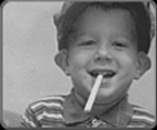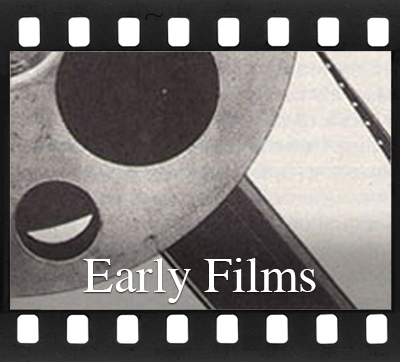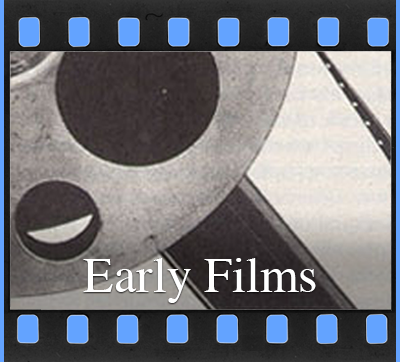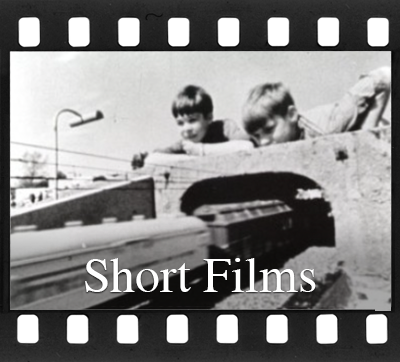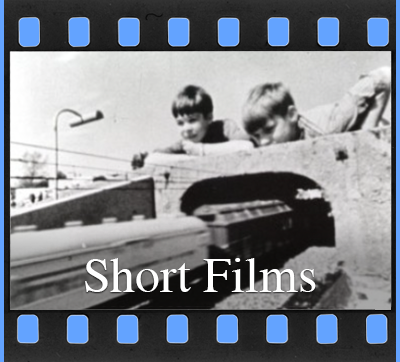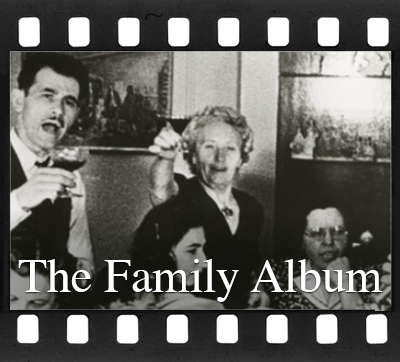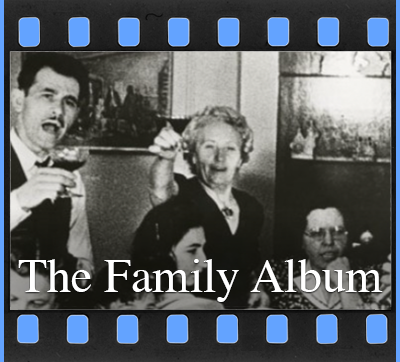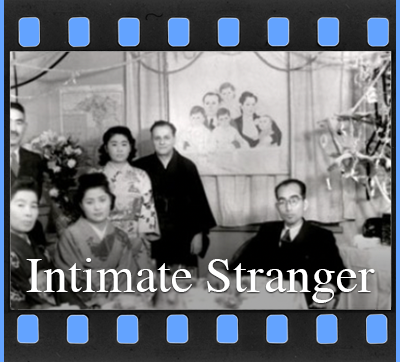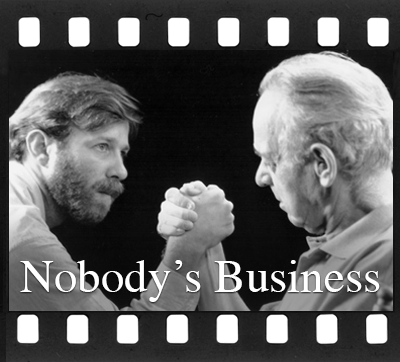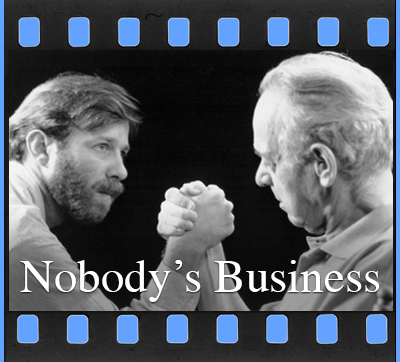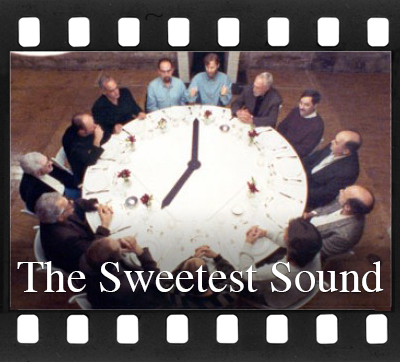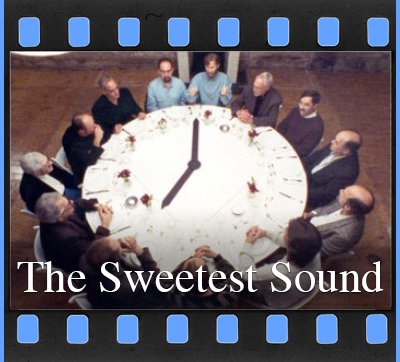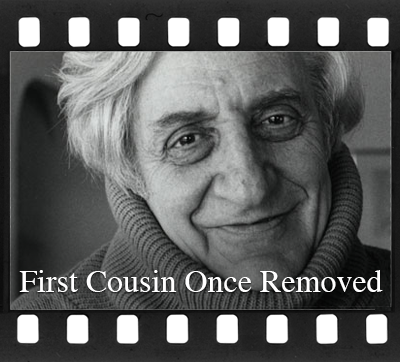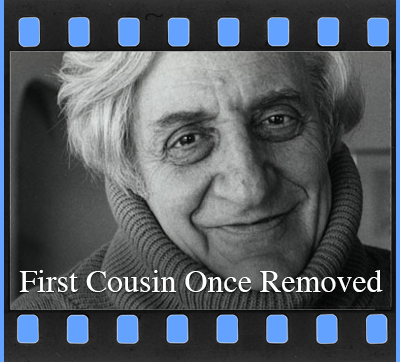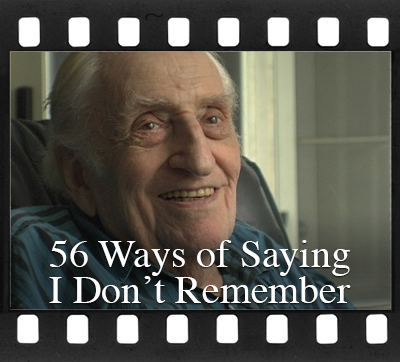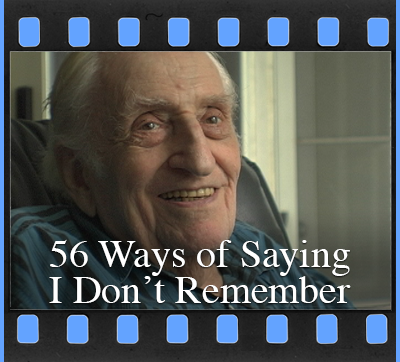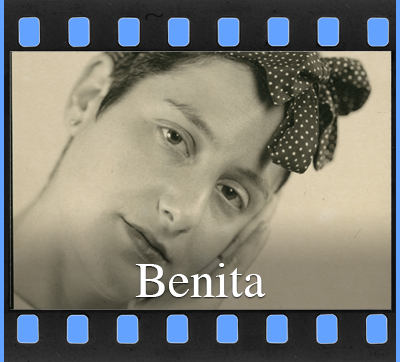The Washington Post
Friday, June 5, 1992
Review
The Wonder of 'Stranger'
By Hal Hinson
Washington Post Staff Writer
In this season of mega-sequels, mindless comedies and formulaic action adventures, discovering an unpublicized gem like Alan Berliner's "Intimate Stranger" gives a critic hope. The film is a little wonder - funny, probing and so wholly original in both style and substance as to seem completely without precedent.
Technically, the picture is a documentary, but the form it takes is so distinctly personal that it refuses to fit neatly into any category. It's a kind of biographical assemblage, with the fascinating life of Berliner's grandfather, Joseph Cassuto, as its subject. But it's also a sort of secondhand autobiography, with Berliner completing the life story- - titled "The Life of a Good Samaritan" - that Cassuto left unfinished at the time of his death.
Still, this only partially describes the ground that Berliner has covered in this brilliant, one-of-a-kind film. In the grand scheme of world affairs, Joseph Cassuto is not worthy of even a footnote in history. In fact, the question of whether he was an ordinary or an extraordinary man is the film's principal topic of debate, with friends, siblings, in-laws, children and grandchildren all weighing in with their separate and often contradictory opinions.
"I wouldn't give 2 cents to see a film about his life," one witness testifies.
"It's not going to be 'Rain Man,'" another adds. "It's not going to be 'One Flew Over the Cuckoo's Nest.'"
And yet this study of the remarkable life of a seemingly average man presents a figure as complicated and enthralling as any fictional character in recent memory. Using his grandfather's own writings and the thousands of documents, snapshots, letters and other memorabilia that Cassuto obsessively saved, Berliner moves us through the pages of his subject's life as if they were being freshly typed into the typewriter. As the details unfold of Cassuto's birth as a Jew in Palestine, his emigration to Alexandria, Egypt, and his association with the Japanese textile firm for which he worked, we hear the clacking of the typewriter keys and the punctuating bell of the carriage return.
This stylistic device is a stroke of cinematic genius; not only does it structure the film, it also creates a sense of visceral immediacy and a visually exciting graphic surface. The images Berliner puts on screen aren't always a literal illustration of the events. Instead, he frequently evokes the emotional tone of a moment through shots that seem to spring from poetic associations, or from aural cues that in a single sound, sum up an event.
It's difficult to convey just how intoxicating Berliner's montage of collected evidence is to watch, and just how expertly he's pieced it all together. As he moves through Cassuto's life, it's as if we were playing a game of hopscotch, skipping from one dramatic high point to the next. We see Cassuto in photographs with the most prominent Zionists in Alexandria before World War II and with his Japanese friends for whom he held a deep, lifelong affinity. After the war we see him in Brooklyn, somewhat defeated and heartbroken over the devastation of Japan. This was a period, we're told, of uncertainty and emotional violence. In Alexandria, Cassuto was at the center of everything; in America, he was nothing, and after a year of not being able to find suitable work, he rejoined his Japanese company and moved, without his family, to Tokyo, where he live 11 months of the year.
At this point, the movie becomes a kind of essay on the economic rebirth of Japan. Textiles were Japan's only surviving industry, and Cassuto, with his connections to Egyptian cotton, was instrumental in bringing that segment of the economy back to life. For this, he was a hero in Japan; but, back home, his wife felt that he had deprived her of a normal life, while his children felt abandoned and betrayed. "In this part of his life," one of his son's remarks, "I didn't exist."
This referendum on Cassuto's life - with the praise of the Japanese counterpointed by the anguish of his family - is profoundly moving. "He was a professional advice machine," one relative says, commenting on his habit of offering his views on life to any and everyone including presidents Kennedy and Nixon. To his family, though, he was reproachful and discouraging, admonishing them for wanting to explore their talents and urging them to "play it safe."
This dichotomy in Cassuto's public and private self is never explained, which is why ultimately, the man remains such an intriguing enigma. Nor is there a consensus among the family members about what sort of man he was. But Berliner isn't interested in judging his subject; he lets the individuals speak their own hearts, sometimes poignantly, sometime hilariously. He has said that his film walks the fine line between "sorting the dirty family laundry and polishing the precious family jewel." That walk along a fine line, as it turns out, is a spectacular high-wire feat by a fledgling master.
- ◻ SYNOPSIS
- ◻ AWARDS
- ◻ CREDITS
- ◻ FESTIVALS & SCREENINGS
- ◻ JOURNAL EXCERPTS
- ✓ THE WONDER OF STRANGER
- ◻ VARIETY REVIEW
- ◻ SELECTED REVIEWS
- ◻ PRESS QUOTES
- ◻ POV INTERVIEW
- ◻ VIEW CLIPS
- ◻ PHOTOS
